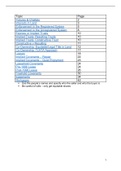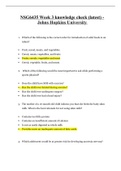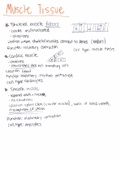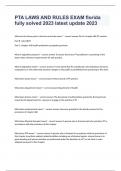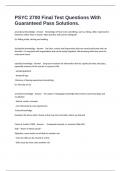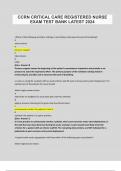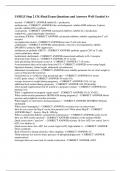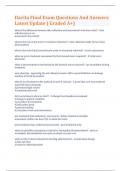Summary
Summary GDL - UNIVERSITY OF LAW - LAND LAW - FULL REVISION NOTES (DISTINCTION)
- Module
- Land Law
- Institution
- University Of Law (ULaw)
Scored 78 using these notes in the final exam (2022). Covers all topics in Land Law on the GDL at ULaw. Follow the headings in order to match the distinction-style structure taught by ULaw tutors. Anything in yellow is where context based on the question can be inserted into the space.
[Show more]
